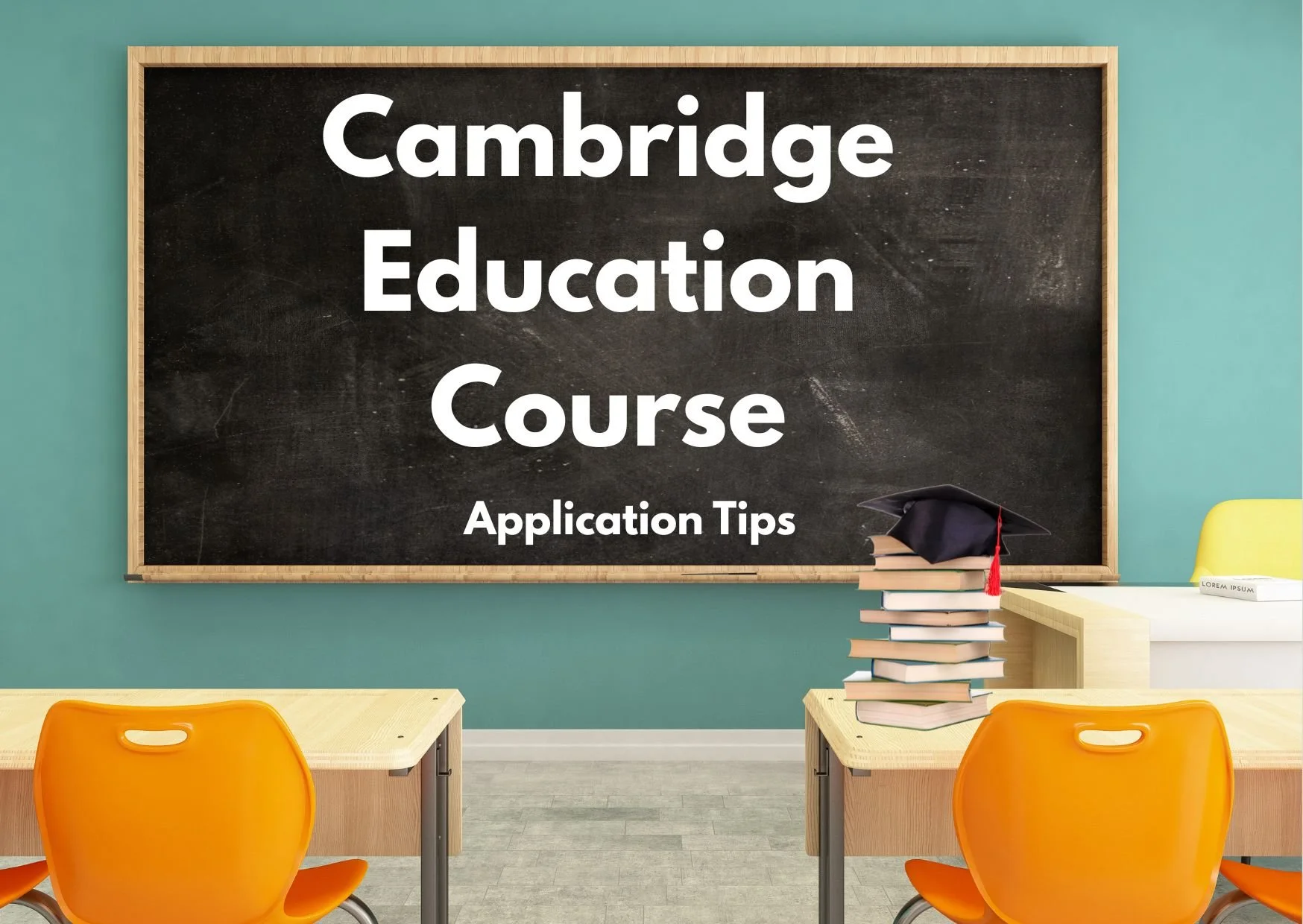Studying Education at Cambridge: Course Structure, Prestige & Application Tips
Can you study Education at Cambridge? What is the course like?
Yes! You can study Education at all colleges except Corpus Christi, Girton, King’s, Murray Edwards, Peterhouse, St Catharine’s, Sidney Sussex, Trinity and Trinity Hall.
A degree in Education at Cambridge examines education from an interdisciplinary lens. It encompasses the study of human development, the nature of education, education systems, and the interrelation of education with socio-economic and political contexts.
Education is a key component of human life, but many assumptions exist.
There are many disciplinary approaches to studying education; this course enables you to learn about these.
You could become an expert in subjects such as Children’s Literature, Education and Psychology, or Educational Policy and International Development.
It is not the same as a PGCE (Postgraduate Certificate in Education), and students would need further qualifications to become a Teacher.
Course structure:
Beyond the first year, it’s incredibly flexible. Students can follow an existing pathway or make their own based on available papers.
First-year students are expected to take four compulsory papers, offering students foundations in education systems, learning and development, and how education relates to creativity, culture, and social justice.
Second years have two compulsory papers in educational research and completing a literature review, to teach them the essential skills for academic research.
They can then choose from various other interdisciplinary papers, including psychology, policy, theatre, contexts of learning, and approaches to SEN and disability teaching.
The final year offers a similar rich range of options, covering a breadth of topics. Students take three papers and write a dissertation on a research area of their choice.
Is the Cambridge Education Program Prestigious?
Yes, it’s one of the most respected Education degrees globally.
The Complete University Guide places it at number 1 in the UK for Education degrees.
Graduates have excellent outcomes:
Students are well prepared for a career in education, whether as a teacher, policymaker, or in another related field.
The degree also equips them with transferable skills that employers from various industries value, such as consultancy, charities and NGOs, journalism, performing arts, and more.
How Hard Is It to Get Into the Cambridge Education Course?
The course is competitive, with around four applicants for every place and an intake of around 37 annually.
The minimum offer tends to be A*AA at A-Level or 41-42 points, with 776 HL at IB.
The A* may be expected in a specific subject, or a higher offer may be made.
Sometimes, lower contextual offers are made.
Students aren’t expected to have studied particular subjects, but English, History, Languages, and Social Sciences make a strong application.
The personal statement may feel daunting since Education isn’t a subject you’ve studied at school.
Your education is an advantage! It’s already exposed you to the different teaching styles or ways of learning. And chances are, it’s part of why you wish to study Education further.
Use broader resources to hone in on your interests and then find resources relating to those topics.
Reading introductory books on core educational concepts or issues is very helpful.
Bartlett, S., & Burton, D. (2016). Introduction to Education Studies (4th ed.). Los Angeles: Sage.
Arthur, J., & Davies, I. (Eds.). (2010). The Routledge Education Studies Reader. London: Routledge
Don’t try to read the whole book! Begin with the introduction. These tend to summarise a work’s key concepts and arguments. Alongside that, perhaps choose a chapter that piques your interest.
Engage with articles from the Education section of Newspapers or explore blogs or updates on Tes (the Times Educational Supplement).
A tutor from U2 Tuition can provide in-depth personal statement support from 1-1 masterclasses on educational topics that interest you, to tailored reading recommendations and draft feedback.
There’s no assessment for this course, though students are expected to submit two pieces of written work.
Your chosen college will provide further details, but it’s expected to be work that you submitted during your regular schooling, not specifically written for your application. A teacher should also have marked it and their comments included.
Uncertain over which pieces of your schoolwork to send in? We can help advise you on the one that best highlights your capabilities and aligns with what Cambridge looks for.
Given the competitive nature of admissions, why not boost your chances with an expert tutor? Learn more about our support for Oxbridge applicants here, or book a complimentary 20-minute consultation.
What Are Some Cambridge Education Course Interview Questions?
Since there is no admissions assessment, interviews are a key part of Cambridge Education applications.
Students typically have between one and three interviews that average between 20 and 45 minutes each. There is no set number of interviewers, though they will generally be specialists in your field.
Aside from your personal statement, it’s your only chance to make an impression on the admissions tutors.
The interview resembles a supervision, the method of teaching at Cambridge. In a supervision, a student, along with one or two course mates and their tutor, a subject specialist, engages in deep academic discussion, typically around a topic they have produced an essay on that week.
In this case, students aren’t expected to know specific educational theories or concepts. The interview isn’t a memory test; instead, tutors assess whether an applicant is suited to the course, whether they are genuinely interested in it, and whether they have the potential to thrive at Cambridge.
It’s your chance to demonstrate your passion and commitment to your subject – so seize it!
You may be exposed to new ideas or have your current ideas challenged. Tutors want to see how you think on your feet and that you can engage critically with your subject.
Ensure you know the content of your personal statement and submitted work inside out! Do prepare to be challenged on these and introduced to new or conflicting views with your positions.
Also, read more broadly around your subject, going beyond what you put down in your personal statement.
If you don’t know an answer immediately, take some time to think about it. A brief moment of silence isn’t a bad thing. It helps to explain your thinking aloud, as interviewers want to see how you think.
Starting to brainstorm answers to questions could be helpful, though it’s important not to create rehearsed answers.
These could be some good questions to practice:
What draws you to study Education as an academic subject, rather than simply training to be a teacher?
Education is an interdisciplinary subject - how do you think psychology, sociology, and philosophy contribute to understanding education?
How do you see the difference between learning and education?
How do cultural and socioeconomic backgrounds shape access to education?
How might your own educational experiences bias your opinions about learning?
A mock interview is a great way to develop your interview skills. Approach a teacher, parent, or friend to see if they’d help you.
Looking for more targeted interview support? Our expert Cambridge Education tutors would love to support you.
They’re course graduates, so they know exactly what makes a successful application and what the tutors look for.
We’ve got years of experience in building students’ interview confidence and enhancing their skills, including public speaking, critical analysis, and conciseness.
Our experience also means we’ve got a large bank of questions to help further your preparation.
Tutors can also carry out mock interviews and provide in-depth feedback on your performance, including your strengths and areas of development.
To take your preparation to the next level, why not consider one of our mock interview days? Learn more here.
How U2 Tuition Can Help You Succeed
U2 Tuition offers expert, tailored support to help you stand out in your Cambridge Education application and beyond:
1-1 mentoring from Cambridge Education graduates who understand precisely what admissions tutors are looking for.
Comprehensive university guidance. In addition to Cambridge preparation, our mentors can advise which other universities offer outstanding Education courses and help with college and course choice.
Personal statement support includes suggestions for wider reading, relevant extracurriculars, and detailed structure, clarity, and academic depth feedback.
Written work guidance to help you choose, refine, and present your submission effectively.
Interview preparation and mock practice, developing key skills such as critical analysis, reflective thinking, and communication, giving you the confidence to perform at your best.
Ongoing subject tuition to ensure you meet your academic offer and continue building strong foundations in relevant areas.
Flexible delivery, both online and in-person, in London, with bespoke tuition designed entirely around your goals.
Book a consultation today to learn more about how our Cambridge Education tutors can support your journey to success.





